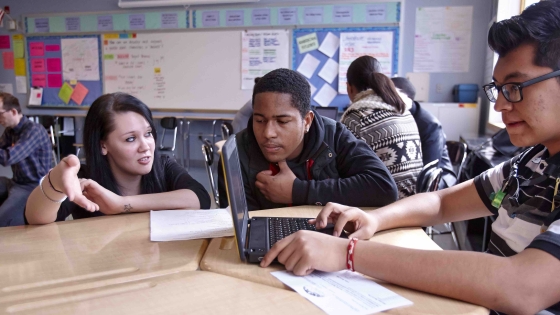
The 10th Grade Implementation of iMentor's College Ready Program
By Lisa Merrill, David Kang, Nina Siman and Jasmine Soltani (November 2016)
The iMentor College Ready Program is a school-based mentoring program that aims to help students build the mindsets, skills, and knowledge necessary to enroll and succeed in college. iMentor works with partner high schools that serve low-income students, and places at least one full-time staff member in each partner school to help implement the program. In each school, iMentor engages in four key activities:
- Matching mentees and mentors,
- Supporting mentee-mentor pairs,
- Teaching college knowledge and non-cognitive skills through a weekly iMentor class, and
- Providing mentees and mentors opportunities to interact, in person and online.
The Research Alliance is conducting an in-depth evaluation of the iMentor College Ready Program in eight New York City high schools. With support from the Social Innovation Fund, the Research Alliance is examining iMentor’s roll-out and implementation in these schools, as well as its impact on a range of outcomes related to students’ preparation for college.
Focus on Mentee-Mentor Relationships examines how the College Ready program was implemented for 10th graders in all eight evaluation schools. According to iMentor’s leaders, the development of close mentee-mentor relationships is the most important outcome for 9th and 10th grade students in the program, because these relationships will provide a foundation for the college readiness, application, and enrollment work that pairs take on in 11th and 12th grade. Therefore, this report focuses on the development of these relationships, as well as the overall quality of program implementation for 10th graders.
The report provides a detailed description of the four key components of the iMentor College Ready Program and assesses the implementation of these program elements against specific benchmarks established by iMentor. It also assesses how specific types and quantities of interaction (e.g., emails, text messages, phone calls, in-person meetings) between mentees and mentors are associated with the closeness of their relationships.

